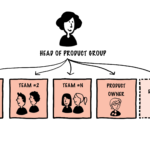Low Energy Levels: Possible Reasons and Healthy Ways to Recharge Your Battery
If you struggle with chronic fatigue syndrome (CFS), you can take comfort in knowing that the struggle is not yours and yours alone. According to a study published by the Centers for Disease Control and Prevention (CDC), more than 2.5 million people in America say that feeling chronically fatigued is a significant problem in their day-to-day life. Many of these same individuals reported being less productive in their work and home life due to their ongoing struggles with CFS. While it is not uncommon to experience some degree of daytime drowsiness when one is sleep-deprived, chronic fatigue syndrome is another matter entirely. In many cases, the ongoing fatigue that is CFS stems from an underlying health problem.
Feeling Occasionally Tired vs. Chronic Fatigue Syndrome: What Is the Difference?
Many people believe that occasional tiredness and chronic fatigue syndrome are the same. However, this couldn’t be any further from the truth. Feeling occasionally tired is usually a byproduct of not getting enough sleep or extreme physical exertion. By comparison, CFS is a long-term affair in that it confers severe fatigue lasting six or more months. The confusion between temporary low energy and ongoing extreme fatigue explains why many people with CFS don’t know that they have it.
To substantiate this claim, we need only look to a study published by MedicineNet.com, an online resource for information on diseases, medications, and general health. The study notes that between 84 and 91 percent of people with CFS never received a formal diagnosis by a licensed physician confirming that they have the condition.
Chronic Fatigue Syndrome Symptoms
Aside from feeling chronically and consistently tired, there are many more symptoms associated with CFS. Some of the more common ones, according to an article published by the Mayo Clinic, include the following:
- Memory problems
- Difficulty concentrating
- Sore throat
- Headaches
- Swollen or otherwise enlarged lymph nodes in the neck or armpits
- Muscle or joint pain
- Dizziness
- Feeling physically or mentally exhausted
Diseases That Make Us Feel Tired: Common Causes of Low Energy
According to most epidemiologists and physicians, individuals who do not get the recommended 7 to 9 hours of sleep each night are at risk of struggling with temporary low energy levels during the day. Of course, this is not earth-shattering news as the two so clearly go hand-in-hand. CFS, on the other hand, is another matter altogether. As of the writing of this article, the cause of chronic fatigue syndrome is unknown. However, many epidemiologists, physicians, and the healthcare community at large believe that the following medical conditions can substantially increase the likelihood of suffering from CFS:
Viral infections – Developing a viral infection can quickly open the door to CFS for some individuals. Some of the more notable ones include human herpesvirus 6 (HHV-6), enterovirus, and rubella. The same is true when it comes to the flu and measles as well.
Immune system problems – Along with becoming more susceptible to infections and diseases, a weak immune system can trigger CFS in some individuals. Among other things, a weakened immune system can stem from chronic diseases, some of which include HIV, AIDS, and certain cancers. While we are on the topic, it is worth noting that certain lifestyle habits can also take a toll on the immune system, such as smoking, excessive alcohol consumption, and consuming a poor diet.
Autoimmune disease – Several autoimmune diseases can put individuals at an increased risk of suffering from CFS due to how they impact the immune system. According to the National Institutes of Health, some of these diseases include systemic lupus erythematosus (SLE), multiple sclerosis (MS), celiac disease, rheumatoid arthritis, and type 1 diabetes.
Hormone imbalances – Along with many others, chronic fatigue syndrome is a common hallmark symptom of a hormonal imbalance. And this is especially the case when it comes to low estrogen, testosterone, and human growth hormone (HGH) levels. There are different treatment options for HGH replacement, so, professionals recommend to get more informed about types of HGH injections to those who consider of getting therapy.
It is worth noting that the list of contributors detailed in this article does not encompass all of the things associated with an increased risk of suffering from CFS. However, the ones mentioned are among some of the more common ones.
Natural and Healthy Ways to Boost Energy
For those who struggle with low energy not caused by an underlying medical problem, there are many ways to go about boosting your energy levels naturally. Some of the ones frequently recommended by physicians include the following:
Sports – Playing sports or incorporating any amount of physical exercise into one’s lifestyle can go a long way toward improving cardiovascular and joint health. But more than that, physical activity can also help keep CFS at bay. To reap these benefits, men and women should make it a point to engage in a minimum of 75 minutes of heart-pumping physical activity per week.
Relaxation and meditation – Since chronic stress is another one of the many contributors to CFS, it stands to reason that finding ways to cope with stress would help boost energy levels. In addition to regular exercise, meditation and taking a few minutes to relax each day are excellent ways to combat chronic stress and fend off CFS.
Hormonal replacement therapy (HRT) – If a physician confirms that chronic fatigue syndrome or even general tiredness stems from a hormonal imbalance, it might be a good idea to look into starting an HRT regimen. This treatment modality, which includes the use of growth hormone, estrogen patch, and testosterone replacement drugs, for example, can ease or resolve many of the symptoms associated with low hormone levels in the body, including CFS.
Diet – One of the easiest ways to get more energy is to make small changes in your diet. And this means consuming more foods that are rich in the following:
- Protein
- Omega-3 fatty acids
- Antioxidants
- Whole grains
- Potassium and magnesium
- Fiber
Additional Ways to Recharge Your Body and Gain More Energy
Coffee – Most will agree that coffee is a great way to recharge the body and gain more energy. And this is because the average cup of java contains around 95 mg of caffeine, which is a stimulant. While more energy is an obvious pro, there are some cons associated with consuming too much coffee. Some of the more common ones include headaches, insomnia, and anxiety.
Energy drinks – Much like coffee, energy drinks, such as Gatorade and Red Bull, for example, can also provide an immediate burst of energy as they are chock-full of caffeine. However, also like coffee, consuming too many of them can trigger headaches, insomnia, and anxiety.
Bottom Line
In summary, many things can cause occasional tiredness and even chronic fatigue syndrome. And both can take a toll on one’s day-to-day life. The good news, however, is there are just as many ways to boost low energy levels. Of course, the first step should entail scheduling an appointment with a physician who can identify what may be causing either of the two conditions and recommend an approach to treatment that is right for you.











